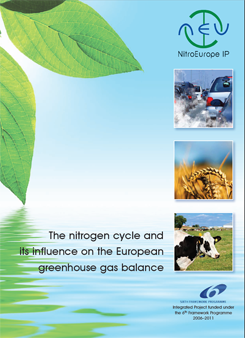Networks comprise growers, researchers, users and other stakeholders that carry out collaborative R&D in legumes or aim to promote the cultivation and use of legumes. Networks typically have several member organisations and actively promote activities such as collaborative multi-site field trials, the exchange of practical information on legume growing and links between different disciplines and stakeholders. Both national and international networks are listed here.
Click on a link in the list below to move lower down this page to a brief description of the network and web links.
- Fabatropimed (France and countries in Africa)
- NitroEurope (Europe, Africa, China, Russia)
- PCGIN Pulse Crop Genetic Improvement Network (UK)
- RUENA (Spain and wider)
Fabatropimed (France and countries in Africa and the Mediterranean)
This collaborative project, supported by the Agropolis Fondation, France, operates through a network of research organisations in France and in Madagascar, Tunisia, Morocco, Senegal, Mali, Burkina-Faso, Algeria and Egypt. Among its aims is to set up a network of field experiments at African and Mediterranean locations on the contribution of legumes as ecological engineers, for example influencing soil processes and element cycles.The project supports 12 doctoral projects.
Further information, contact details and web links can be found on this site under Projects/ecosystem services.
NitroEurope
The nitrogen cycle and its influence on the European greenhouse gas balance
 NitroEurope is a 'project for integrated European research into the nitrogen cycle'. It is part of the EU Sixth Framework Programme and runs for 5 years over the period 2006 to 2011. The project, coordinated by the Centre for Ecology and Hydrology, developed a large and comprehensive network of 62 partners in Europe, Russia, China and Africa. A summary of the main findings was published in 2011 and available as a download from the web site (cover shown right). See also the page on this web site at Projects/nitrogen cycle for other information on NitroEurope.
NitroEurope is a 'project for integrated European research into the nitrogen cycle'. It is part of the EU Sixth Framework Programme and runs for 5 years over the period 2006 to 2011. The project, coordinated by the Centre for Ecology and Hydrology, developed a large and comprehensive network of 62 partners in Europe, Russia, China and Africa. A summary of the main findings was published in 2011 and available as a download from the web site (cover shown right). See also the page on this web site at Projects/nitrogen cycle for other information on NitroEurope.
Web link: NitroEurope
PCGIN Pulse Crop Genetic Improvement Network (UK)
The PCGIN web site indicates its participant organisations are the John Innes Centre, Norwich, NIAB Cambridge, and (PGRO) Processors and Growers Research Organisation, Peterborough. PCGIN is funded by Defra, UK. The web site gives access to a wide range of projects on legumes (e.g. pea) and links to related work.
Web link: PCGIN
RUENA Thematic Network for the Efficient Use of N in Agriculture
The network’s main task is to provide a connection between all of the people who are interested in the efficient use of nitrogenous fertilizers within a single scientific-technical framework, taking into account the far-reaching implications that the use of N has for the environment.
The overall aim is to create an open network, incorporating both the best research teams and teams of experts in applied agriculture and related technical fields, with the aim of fostering exchanges of information in both directions. This will clearly benefit the agricultural sector, which will be the main receiver of the resulting technological transfer.
The network´s objective is to create a discussion forum, a space in which to exchange practical experiences relating to both the use of fertilisers and organic sub-products that act as fertilisers and to techniques for carrying out evaluations and applying appropriate dosages.
Information on RUENA, including its constituent research institutes, universities, companies and other members is available through:
http://www.ruena.csic.es/e_index.html [Ed: currently inaccessible]




